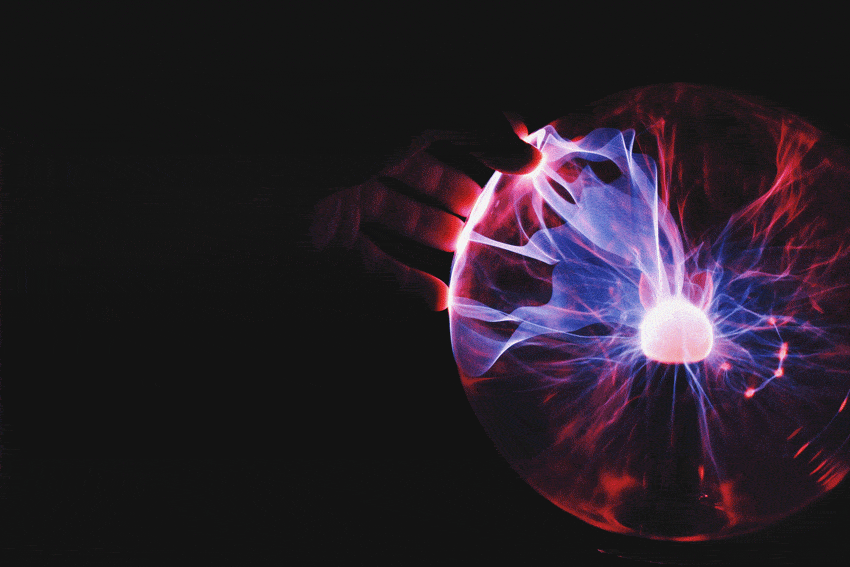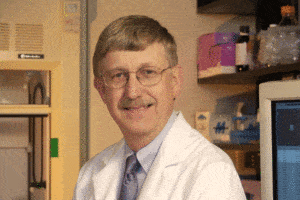
The most amazing thing happened: I heard an interview with the man who recently headed the government agency on biomedical and public health research, and came away feeling . . . uplifted? That was unexpected.
The man is Francis Collins, and until recently, he headed the National Institute of Health, one of the agencies tasked with combating COVID in the US. He is also, as the public radio host pointed out in her introduction, a Christian.
I guess I’ve been hiding under a rock for several years, because I haven’t been aware that an evangelical Christian who used to be an atheist has been head of this agency for the last 12 years. (He has apparently been a thorn in the side of the “haven’t we outlawed this religion nonsense yet” crowd, but also I should note that, under his leadership, the NIH has gone full steam ahead on some grossly unethical research. So this isn’t a tidy story.)
His faith is not really what this essay is about, though; although it was pleasant to hear a man so humbly describing his conversion story, and a public radio host listening so respectfully. If you haven’t heard it, here is how he told it to the host, Rachel Martin:
“It was medical school. It was that third year of medical school, where you’re not in the classroom anymore. You’re on the hospital wards. You’re sitting at the bedside of good North Carolina people whose lives are coming to an end, sometimes with a great deal of pain and suffering. And you’re realising your medical tools are inadequate to actually help them very much.
And I had a moment where a patient of mine, who I’d gotten kind of attached to – an elderly woman kind of like my grandmother – who shared her faith with me and then turned to me one afternoon and said, you know, Doctor, I’ve told you about my beliefs, and you haven’t said anything. What do you believe? What do you believe? Nobody ever quite asked me that question. And, Rachel, at that moment, I realized, I have no idea. I have settled on atheism because it was the answer I was most comfortable with, and it meant I didn’t really have to look into this. But I’m a scientist. I’m not supposed to make big decisions without looking at evidence. I’ve got to look into it.”

What he did next was to ask a pastor friend some challenging questions, and the man directed him toward the book Mere Christianity by C.S. Lewis, which led him to understand that science is meant to answer one kind of question, and religion is meant to answer another. You don’t have to choose one or the other, despite what so many on both sides of our deeply divided society believe.
The host asked him about that divide, and about how he finds hope. He responded that he finds it in his faith. Then he said:
“I also have hope that human nature, despite all of its foibles, is basically put together in a way that over time we find a way to do the right thing, even after making a lot of mistakes along the way.”
This struck me as a message from Heaven.
Here is a man who believes that God made us. And how did God make us? To be good. Maybe not all the time, and maybe not perfectly, and maybe not right away, but eventually, stumblingly, partially, or even just as a race: That’s what we do. That’s what the human race is. It is good. I guess I had forgotten that.
It’s become commonplace, in these dreadful, exhausting times, to look backward through history and to see plainly the fruitless cycles we seem doomed to walk through, over and over again. We struggle, we gain ground, we flourish, and then we come to ruin, over and over and over again. This is the story of mankind, on every continent, in every age, sooner or later, in big ways and in small. It seems like a story of constant, inescapable ruin. Fruitless, pointless.
But here is a man who saw this cycle as a story not of repeated failure, but of repeated hope. He is 71 years old, and he still thinks that people are basically put together in such a way that they are oriented toward the good, at least to try. This is a thing he’s saying in the beginning of the year 2022, after seeing what he’s seen.
I do believe, as we should all believe as Catholics, that there will eventually come an end to the world. There will not just be endless cycles to human life. Human history as we know it will someday cease, and a new age will begin, and we don’t know what that will look like. But I think that, right up until that time (which, Jesus insists, we do not know), it’s our job to keep turning and turning over the soil to find the next harvest. It’s been a deeply discouraging few years, for countless, cascading reasons. We may have allowed ourselves to half believe that we’re just plain run out of goodness, as a human race.
But that’s not how we’re made.
What do you believe? What do you believe? I believe we were made by God to be good. We were made by God for constant conversion. There’s always the possibility of conversion, always the chance to try again to do good. If an atheist doctor can decide to ask hard questions about existence, then I, who already know about God, can decide to look for Him in my fellow fooling fumbling humans. We can ask God for help, and we can find that goodness, one more time.
Related:
